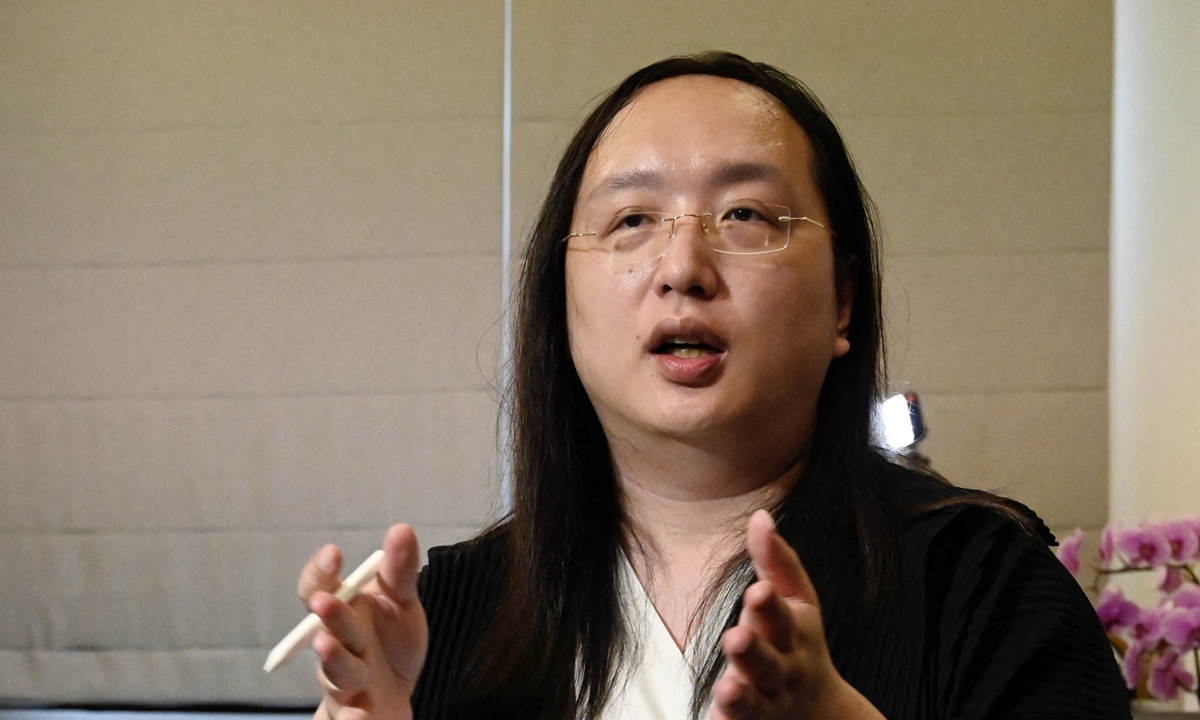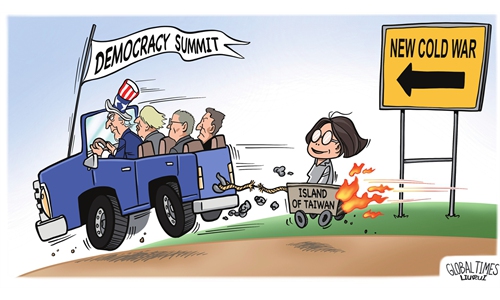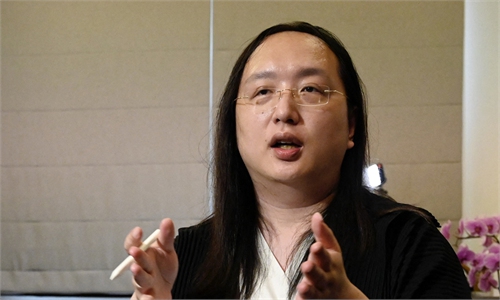
Audrey Tang Feng Photo: AFP
Taiwan's high-profile transgender "minister" Audrey Tang met with setbacks for a second time in a row. According to Taiwan media, the South Korean government called for the last-minute cancellation of her scheduled virtual speech at a conference in Seoul last week.Just one week prior to that, Tang's video was suddenly cut and replaced with only audio at the US-held "summit for democracy" because, as Reuters reported, a map included in her presentation could be seen as being at odds with Washington's one-China policy.
The two incidents are clear proof that both the US and South Korea have kept in mind the one-China principle when dealing with the Taiwan island. The growing strength of the Chinese mainland is the backbone of the effect of the strong one-China principle. It would be futile for Taiwan to change this by staging a bravado.
The Democratic Progressive Party (DPP) authority has pinned its hopes on the international community, especially the US and its allies. The empty but flamboyant promises from these countries are enough to dazzle the DPP authority, but they are just exploiting Taiwan as a pawn to counter the Chinese mainland when Taiwan is desperately troubled by its international standing. Even when the cross-Taiwan Straits situation was tense, the US neither shifted its one-China policy nor made a pledge to defend the island if and when a war breaks out, let alone other countries. The cancellation of Tang's scheduled speech by South Korea and her video being cut at the "summit for democracy" are the epitome of the true strategic situation Taiwan is currently in.
South Korea has been treading cautiously on the Taiwan question to not cross the red line of the Chinese mainland. After President Moon Jae-in called for peace and stability in the Taiwan Straits along with his US counterpart Joe Biden in May, he, at a joint news conference afterward, acknowledged "the special characteristics between China and [the island of] Taiwan," a move that Japanese media called "tiptoeing." In early December, a joint statement between the South Korean defense minister and US defense of secretary also mentioned Taiwan, but South Korea's posture was deemed as conservative, and some Taiwan scholars believe South Korea was not supporting the Taiwan island, but tried to avoid the risks between China and the US.
In a December 13 joint press conference given by Australian Prime Minister Scott Morrison and Moon during the latter's visit to Australia, when asked if it would be inconceivable for South Korea, a US ally, not to join in some kind of defense of Taiwan, Moon did not respond directly but emphasized the "peaceful management of cross-Strait issues."
"South Korea had every reason to believe that the DPP authority might use the occasion hosted by Seoul to push forward its secessionist agenda and put China-South Korea relations in jeopardy," Zhang Hua, an associate research fellow at the Institute of Taiwan Studies, the Chinese Academy of Social Sciences, told the Global Times.
"In the past, the DPP authority resorted to secessionist activities to strengthen its relations with major powers such as the US and Japan, while now they are using small countries such as Lithuania to confront the mainland. It is trying to boost ties in economy, trade and culture with countries that China has diplomatic ties with," said Zhang.
Since Taiwan regional leader Tsai Ing-wen assumed office, the island has lost eight "allies." It would be just an illusion for the DPP authority to take advantage of the non-official ties and make a breakthrough. No matter how uncertain the cross-Straits situation is, the biggest certainty is that the Chinese mainland is taking more and more initiatives over the matter. Taiwan can win no sympathy or support from the international community, but only shame.


